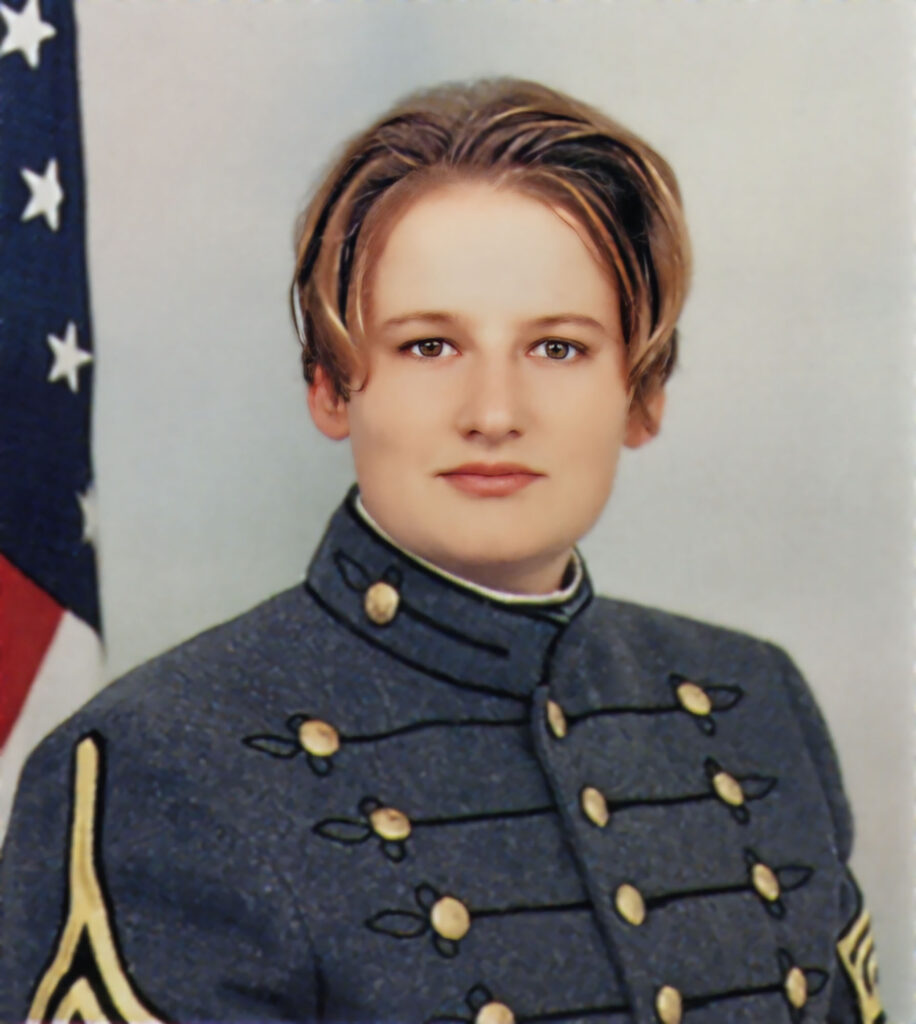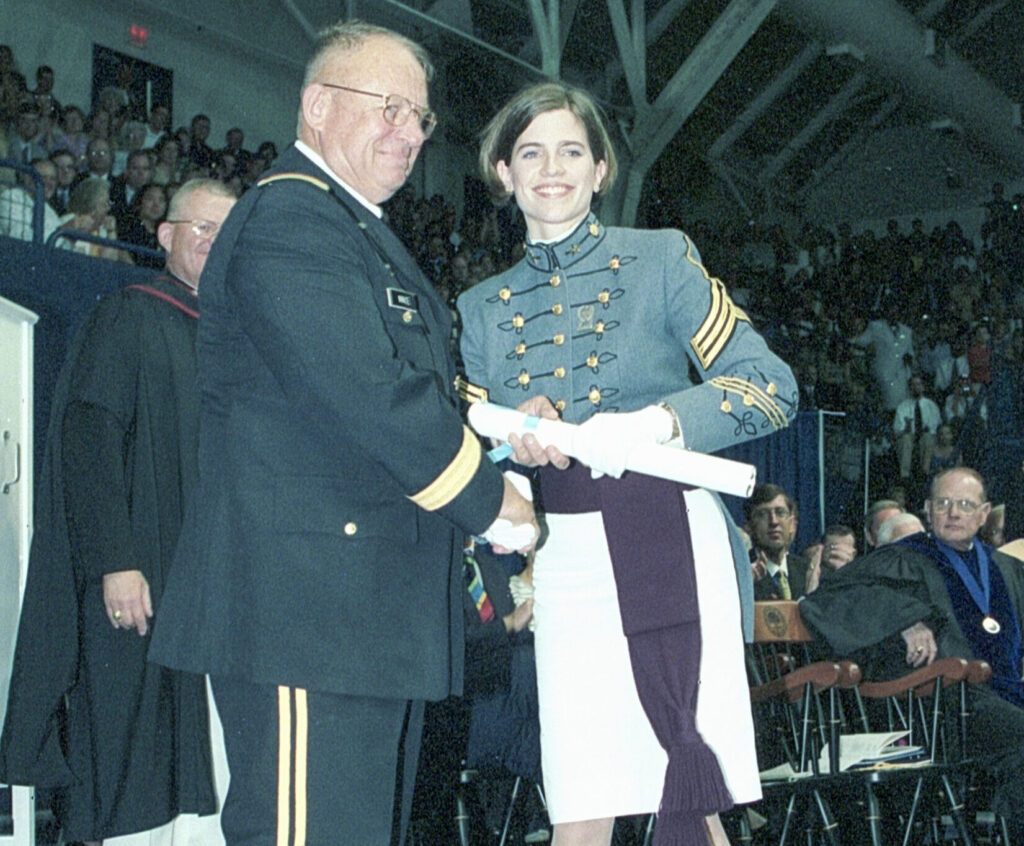1996
On the afternoon of June 28, 1996, The Citadel Board of Visitors assembled in front of Jenkins Hall for a press conference. Two days earlier, in a 7-1 ruling, the Supreme Court deemed the male-only policy at the state-supported Virginia Military Institute unconstitutional. The message was clear—accept women or turn private. At the time, VMI and The Citadel were the only two single-gender military colleges in the country to receive public funds, and both institutions had been involved in lengthy court battles over the admission of women.
With the Supreme Court decision guiding them, the Board of Visitors made a historic decision. “Effective immediately,” Board of Visitors Chair Jimmy Jones announced, “The Citadel will enthusiastically accept qualified female applicants into the Corps of Cadets.”
Two months later, four women were among the matriculating members of the Class of 2000: Nancy Mace of Goose Creek, whose father, retired Army Brig. Gen. Emory Mace, ’63, served as commandant; Petra Lovetinska, a Czech national who lived near Washington, D.C., and two other female cadets who would later withdraw.


In May of 1999, Mace, whose transfer credits allowed her to complete her studies in three years, graduated magna cum laude with a degree in business administration. In 2001, she published a book about her experience entitled In the Company of Men: A Woman at The Citadel. Currently, the first female cadet graduate serves as a member of the U.S. House of Representatives.
Following on her heels, Lovetinska graduated in 2000 and was commissioned into the U.S. Marine Corps. She received her citizenship by a special act of Congress, an honor she shares with Mother Theresa, William Penn, Winston Churchill and Raoul Wallenberg. Today, she is a Marine colonel who goes by her married name, Seipel. She is stationed in Okinawa, Japan, where she serves as the assistant chief of staff for logistics for the 3D Marine Expeditionary Brigade.
The early years of coeducation were often tumultuous. The culture was slow to shift, and in the college’s rapid decision to admit women, adequate provisions for female cadets were needed. Still, the gender barrier had been breached, and day by day, cadet by cadet, assimilation began its gradual ascent. And today The Citadel is a richer institution for the presence of women.

